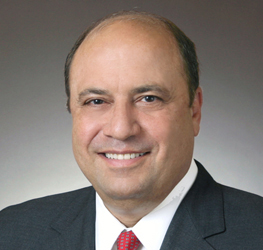Growth Management: Governor Crist Signs Controversial Growth Management Revisions
On June 1, 2009, without any ceremony to mark the occasion, Gov. Charlie Crist signed SB 360, a controversial revision to the state’s growth management laws. Proponents of the bill have said that the intent is to stimulate job creation while discouraging urban sprawl and encourage infill. Opponents of the bill have said that it would encourage sprawl and would not lead to immediate job creation.
The major changes to the state’s growth management policies include:
- Transportation concurrency exemptions: The bill provides exceptions to the general “concurrency” provisions that require road construction to meet the needs of new residential developments. The bill creates transportation concurrency exception areas in municipalities with a population density of at least 1,000 per square mile and a population of at least 5,000 and in all or parts of counties with a population density of at least 1,000 per square mile. The bill also sets out circumstances in which municipalities and counties may designate other transportation concurrency exception areas.
- Development of regional impact exceptions: The bill exempts developments from the development-of-regional-impact review process in certain municipalities and counties with a population density of at least 1,000 per square mile.
- Extension of permits: The bill provides a retroactive two-year extension and renewal from the date of expiration for specified permits, development orders, and land use approvals.
Major environmental organizations and several large counties urged the governor to veto the bill, which was opposed by Department of Community Affairs Secretary Tom Pelham. Business and development interests, including the Florida Chamber of Commerce, praised the governor’s decision to sign the bill.
Taxation: Property Appraisal Burden-of-Proof Bill Becomes Law
On June 4, 2009, Gov. Crist signed HB 521, which changes the burden of proof in disputes between taxpayers and property appraisers over the assessed valuation of real property for ad valorem tax purposes. Under the bill, a taxpayer may overcome the presumption of correctness that generally applies to the property appraiser’s valuation by proving that the appraisal does not represent the just value of the property, does not represent the classified use value or fractional value of property that is assessed based on character of use, or is arbitrarily based on different appraisal practices than the property appraiser uses for other similar property.
Supporters of the bill, including the Florida Association of Realtors and the Florida Chamber of Commerce, said that the bill would help the 120,000 property owners annually who challenge appraisals before value adjustment boards. At the bill signing ceremony, Gov. Crist said the legislation “will simply level the playing field.”
The bill is expected to save taxpayers nearly $700 million a year by 2013.
Politics: Rep. Patterson Enters Republican Primary for Chief Financial Officer, While Democrats Search for a Candidate
State Rep. Pat Patterson (R-Deland), Chair of the House Insurance, Business & Financial Affairs Committee, announced on June 2, 2009 that he is a candidate for the office of state Chief Financial Officer (CFO). Rep. Patterson joins Senate President Jeff Atwater (R-North Palm Beach), who announced his candidacy for CFO on May 19, 2009. The CFO position is currently held by Democrat Alex Sink, who is running for governor.
There are no announced Democratic candidates for CFO. Recent speculation has centered on two Miamians: Mayor Manny Diaz and businesswoman Annette Taddeo. State Sen. Ted Deutch (D-Delray Beach) also has been mentioned as a potential candidate.
Politics: Strategic Vision Poll Shows Crist Ahead of Rubio, Meek
In a survey released on June 5, 2009, the Republican-identified Strategic Vision LLC polling firm found that Gov. Crist has a strong lead in both the primary and general election races for the U.S. Senate seat being vacated by Sen. Mel Martinez in 2010. The poll showed the governor leading former House Speaker Marco Rubio (R-West Miami) in the primary race by 59 percent to 22 percent. In a general election race against U.S. Rep. Kendrick Meek (D-17th Congressional District), the presumptive Democratic nominee, Gov. Crist leads by 59 percent to 29 percent.
The race to succeed Gov. Crist is too close to call, according to the survey. Republican state Attorney General Bill McCollum has a 41 percent to 39 percent lead over Democratic state CFO Alex Sink.
The poll also pointed to surprising strength for state Sen. Paula Dockery (R-Lakeland), who may be contemplating a primary challenge to Attorney General McCollum. According to the survey, the attorney general would have a 44 percent to 28 percent lead, with another 28 percent undecided, in a primary race against Sen. Dockery.
Strategic Vision surveyed 1,200 likely voters between May 29 and May 31, 2009. The poll has a three-percentage point margin of error.
Insurance: Consumer Choice Deregulation Bill Creates Controversy
On June 3, 2009, Gov. Crist stated that he would probably veto HB 1171, the so-called consumer choice bill that allows some large insurance companies to market residential property policies without being subject to regulatory rate caps. The bill would allow insurers that have a net worth (technically, “surplus as to policyholders”) of $150 million or more and that meet certain other criteria to offer the deregulated policies after making specified disclosures to the consumer. The bill is viewed by proponents as a way of keeping large national property insurers in the state and by opponents as a way to allow insurers to raise rates while escaping regulatory review.
Florida Insurance Commissioner Kevin M. McCarty has vigorously opposed the bill, stating that the Florida insurance market is adequate to meet the needs of the state’s property owners even if large insurers such as State Farm, leave the state. Earlier this year, State Farm Florida Insurance Co. announced that it would cease covering property in Florida. The Consumer Federation of the Southeast and the Florida Public Interest Research Group also oppose the bill.
The sponsors of the bill, Sen. Mike Bennett (R-Bradenton) and Rep. William “Bill” Proctor (R-St. Augustine) have been highly critical of the insurance commissioner. In their view, the bill expands a consumer’s choice by allowing large, highly solvent companies to use market-based pricing and reduces the likelihood that a property owner will be forced to obtain coverage from either a start-up company or the state-created Citizens Property Insurance Corp.
As of June 8, 2009, the bill had not been signed by the presiding officers of the Legislature and presented to the governor. Once the bill reaches the governor’s desk, he will have 15 days to sign it, veto it, or allow it to become law without his signature.
Public Policy News Alert is part of our ongoing commitment to providing up-to-the-minute information about pressing concerns or industry issues affecting our clients and our colleagues. If you have any questions about this alert or would like to discuss these topics further, please contact your Foley attorney or any of the following individuals:
|
Marnie George Michael P. Harrell Robert H. Hosay |
Jonathan P. Kilman Thomas J. Maida Leonard E. Schulte |

